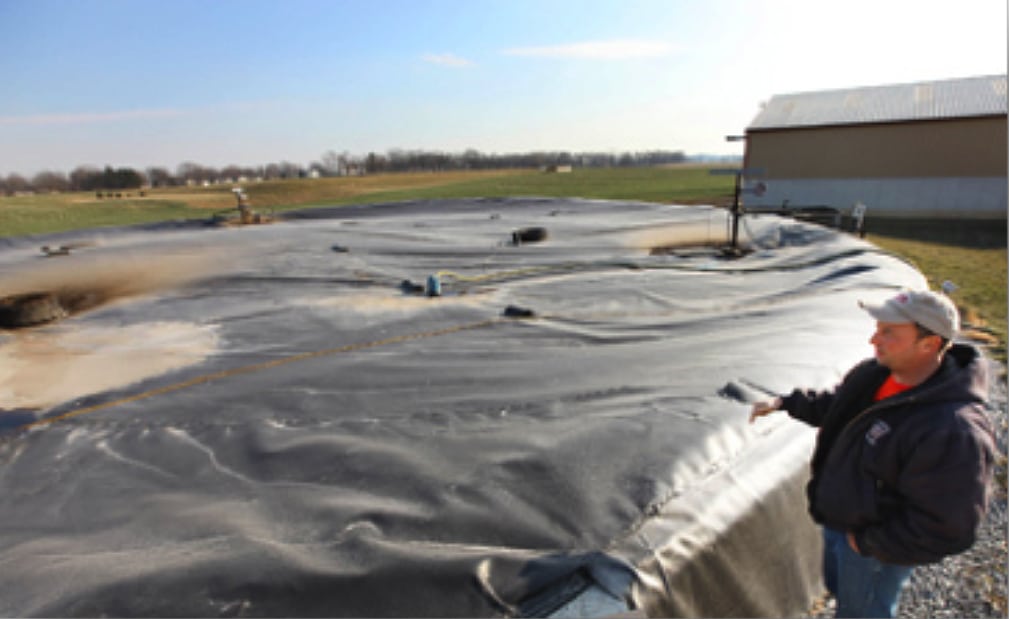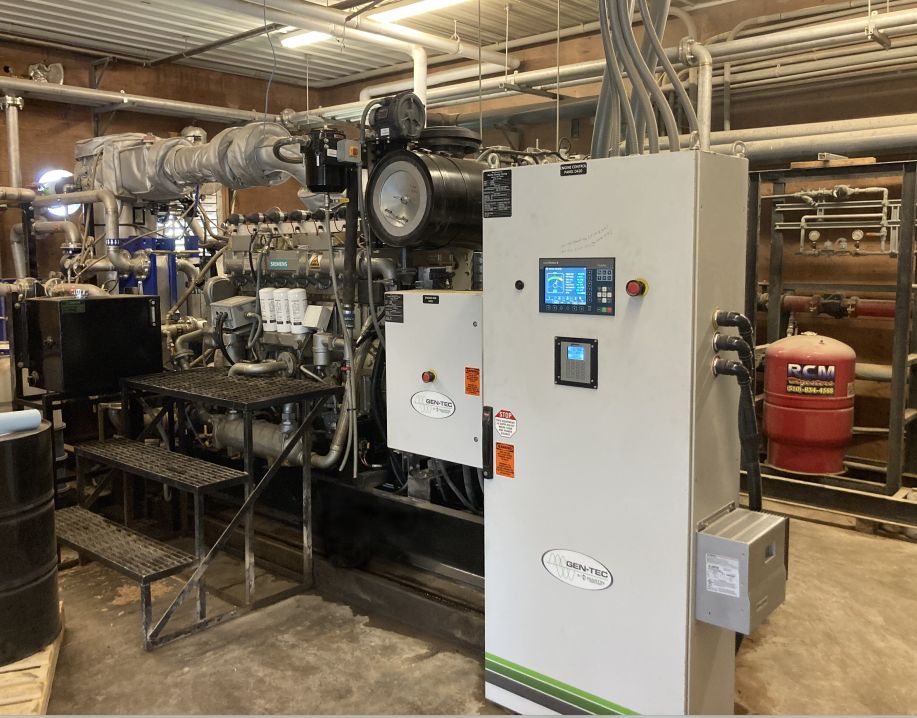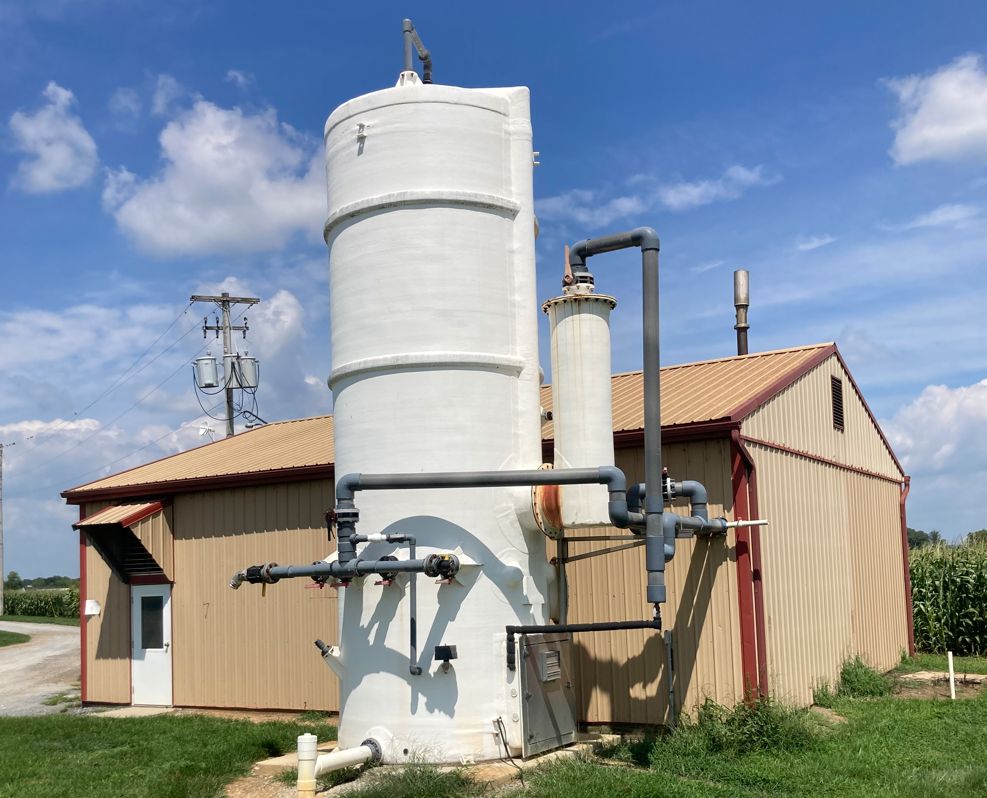Completed: 2007 / Upgraded: 2018
Type: Complete Mix Technology
Location: Mt. Joy, PA
| Feedstock | Ton/Day |
|---|---|
| Manure (800 Cows) | 64 |
| Food Waste: Variety | 5 to 12 |
| Food Waste: Pulped Cafeteria Wastes | 0.2/day (up to 2 tons each week |
Original 2007 System
The digester System at Brubaker Farms was designed to accommodate wastes from 1,000 cows and has excess capacity for landfill-diverted food waste. The farm is now accepting a variety of food waste, including cafeteria waste from nearby Elizabethtown College.
Both pre-consumer and post-consumer food waste from the college dining halls is piped into a pulping system in the building where food waste is broken down and water is separated from the waste. The water is recycled back into the pulping system and wastes are pumped into a heated truck, which can hold up to 1,200 pounds of pulped organic waste. The waste is transported to Brubaker Farms twice a week where it added to a cow-manure digester.
While many colleges and universities do use a pulping system for their waste, the difference between those systems and Elizabethtown’s is that other colleges dump the pulp waste down the sanitary sewer and continually need to add fresh water. Elizabethtown’s pulping system recycles the wastewater, thereby reducing the need for fresh water.
Food waste is fed into a digester at Brubaker Farms and mixed with manure at a temperature of 100 degrees (F). The resulting methane gas powers approximately 199 kilowatts an hour, enough to power about 200 homes.
Upgraded 2018 System
In 2018, after 90,000+ hours of run time accrued on the existing system, Brubaker Farms chose to upgrade the CHP for increased output capability and extending the life of the digester system. MEG provided a Guascor powered 335KW Combined Heat and Power biogas unit and MEG biological H2S scrubber.


